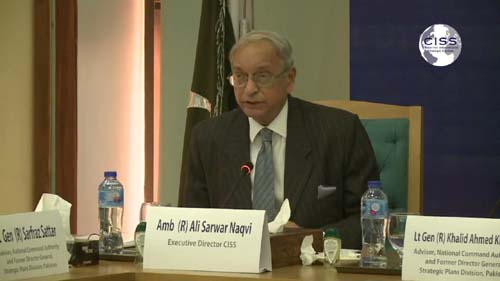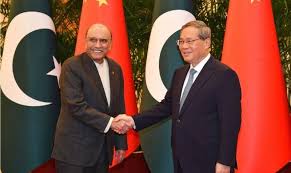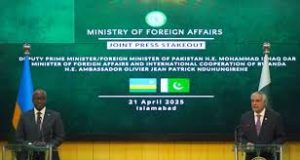Pakistan desires stability and peace in S. Asia: Naqvi

Islamabad: Stability and peace in South Asia remains Pakistan’s core strategic interest.
This was stated by Amb Ali Sarwar Naqvi, executive director Center for International Strategic Studies (CISS) Islamabad, while speaking at a discussion hosted by his think tank on the 24th anniversary of Pakistan’s nuclear tests, according to a press release issued on Tuesday.
Amb Naqvi, who had closely witnessed the decision making on nuclear tests in 1998, said they were undertaken as strategic response to India’s nuclear tests of Operation Shakti held on May 11 and 13 the same year, which transformed the strategic outlook of South Asia.
“The Indian nuclear tests left no option for Pakistan other than to restore its national security interests and gain its own nuclear capability,” he emphasized.
Executive Director CISS-Muzaffarabad Dr Asma Shakir Khawaja argued that the attainment of strategic capability settled the gap of conventional disparity between Pakistan and India and established deterrence dynamics along with balance of power. It provided Pakistan strategic advantage and also brought a deterrent feature across the region, she added.
She noted that despite troubled bilateral relations dynamics between Pakistan and India, nuclear capability has maintained the deterrence stability. However, she warned that crisis stability has been constantly under stress.
Touching upon the March 9 missile incident, Dr Khawaja said, it reflected a profound level of incompetence in handling of sensitive weapons among Indian forces. This incapacity to handle advanced weapons systems, along with multiple cases of nuclear thefts in India, manifest its irresponsible behavior that is endangering regional as well as global security.
She further questioned India’s commitment to existing confidence building measures with Pakistan, as it chose not to timely share the details of accidental launch that could lead to escalation of crisis to nuclear level.
Dr Zafar Khan, Executive Director Balochistan Think Tank Network, stated that during last two decades the imbalance in conventional military capabilities between India and Pakistan is creating an offense-defense imbalance where the state with offensive capability will have great incentive to undertake preemption.
He also discussed the aspect of emerging technologies, hybrid warfare and its implications on the South Asia Strategic Stability.





